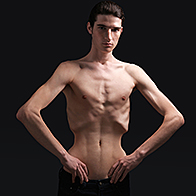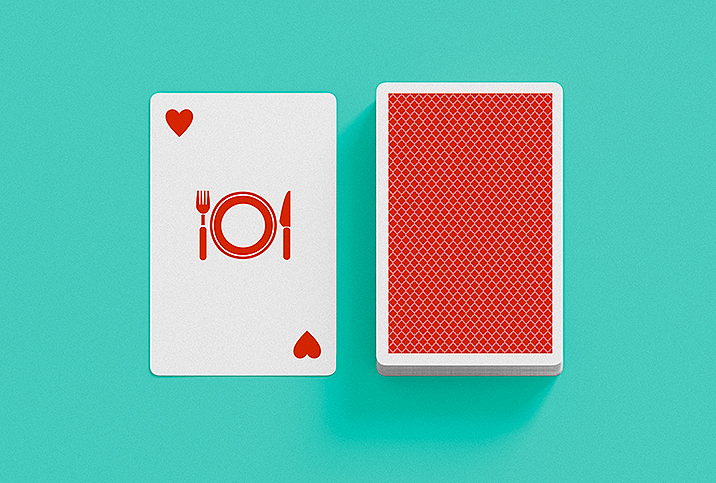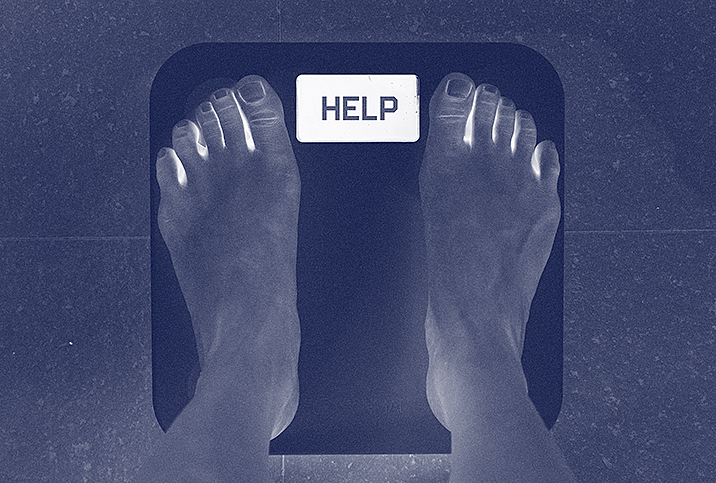Eating Disorders Can Affect Your Penis

Eating disorders are commonly discussed as an issue that predominantly affects women. Women, after all, are flooded with consistent imagery of skinnier women who are lauded for their beauty and, most of all, their physique.
Clinical studies show eating disorders arise more often in Western culture, though developing countries under Western influence face similar problems with body dissatisfaction and weight-related anxiety.
Still, it would be wrong to assume only women struggle with eating disorders. Men are, perhaps to a lesser degree, also held to certain culturally influenced physical standards and encounter their own anxieties, insecurities and self-perceptions. In fact, eating disorders affect nearly 10 million men at some point in their lives, according to data from the National Eating Disorders Association (NEDA).
Unfortunately, eating disorders in men often go unnoticed or unaccounted for, as suggested by a study published in JAMA Pediatrics, which drew a correlation between men's desires for muscularity and an increased likelihood of drug and alcohol abuse and obesity. However, most research into eating disorders has been conducted among female populations, with men being diagnosed at a far less frequent rate.
Research on anorexic and bulimic men is lacking
Until the early 1980s, when University of Iowa professor of psychiatry Arnold Andersen reintroduced the concept that men could be anorexic, guys simply weren't diagnosed with the disorder. Andersen co-wrote the book "Eating Disorders: A Guide to Medical Care and Complications" with fellow researcher Philip S. Mehler, M.D., as a comprehensive manual to combating eating disorders.
Yet for the past 40 years, research into eating disorders in men has remained sparse. The limited research that exists, however, discovered the three most common eating disorders in men are anorexia nervosa, bulimia nervosa and binge eating disorder.
Sandeep Joshi, a research team manager at DelveInsight in India, and his team also identified the most common causes of eating disorders in men:
- Sexual abuse and other trauma
- Gender orientation
- Weight history
- Depression and shame
- Exercise and body image
- Comorbid chemical dependency
- Media pressures
"There is a constrained relationship with both food and sex in people with eating disorders," Joshi said, speaking on behalf of the entire team. "Sexual dysfunction is a common side effect. An individual with an eating disorder has a low body weight and low testosterone production, which may result in physiological impairment to the sex organ. Disfigured body image, body dissatisfaction and shame are the core features of eating disorders, which further inhibit healthy sexual function."
In other words, men suffering from eating disorders likely experience sexual dysfunctions, primarily erectile issues.
Additionally, DelveInsight's analysts found an increase in the number of men with eating disorders in recent years: An estimated 20 percent to 25 percent of all people with eating disorders are male.
Ties to penis health
Eating disorders come about as the result of a complex series of psychological neuroses, which can, in their own way, impact a person's sexual function.
"One of the biggest underlying components for erectile dysfunction is anxiety, which often coincides with eating disorders," said psychologist Erin Donnelly, Psy.D., a sex therapist in Kansas City, Missouri, with 12 years of experience in the field. "There's a certain level of perfectionism, high expectations and conscientiousness associated with body and appearance, so it becomes a tangled web of a ton of different things."
Eating disorders also wreak havoc on the body, depriving it of essential nutrients and calories, as is the case for people who are anorexic or bulimic, and contributing to a host of physical impairments, such as obesity, high blood pressure, diabetes and heart problems, as is the case with binge eating disorder.
"Fundamentally, biologically, if men are experiencing significant nutritional deficits, and the body doesn't have enough calories to function, our reproductive function is a 'luxury function,' so that's one of the first things to go out the window," Donnelly continued. "Working to improve everything someone is coming in with is going to improve not just sexual functioning but the overall health of an individual."
Get help for eating disorders
What can men do to get help with an eating disorder?
First, it's important to understand sexual inhibitions caused by eating disorders are not a reflection of masculinity. The same is true for eating disorders themselves. No one is "less of a man" for experiencing penis problems in the bedroom or feeling a certain way about his body.
Men shouldn't be ashamed to seek therapy or medical assistance, especially when an issue interferes with their health, happiness or ability to function on a day-to-day basis. One resource for men looking to learn more about eating disorders is the NEDA website, which offers a confidential helpline for support.
Men experiencing erectile problems should speak with their doctor to identify the root cause of their issues, or consider working through their anxieties and traumas in therapy with a licensed professional.
"Sex is so conflated with masculinity," Donnelly said. "So if sex is, in any way, not where people want it to be, is masculinity then threatened or hindered? No, but I think a lot of the work we have to do is in expanding the definition of masculinity and breaking down a lot of those myths."




















